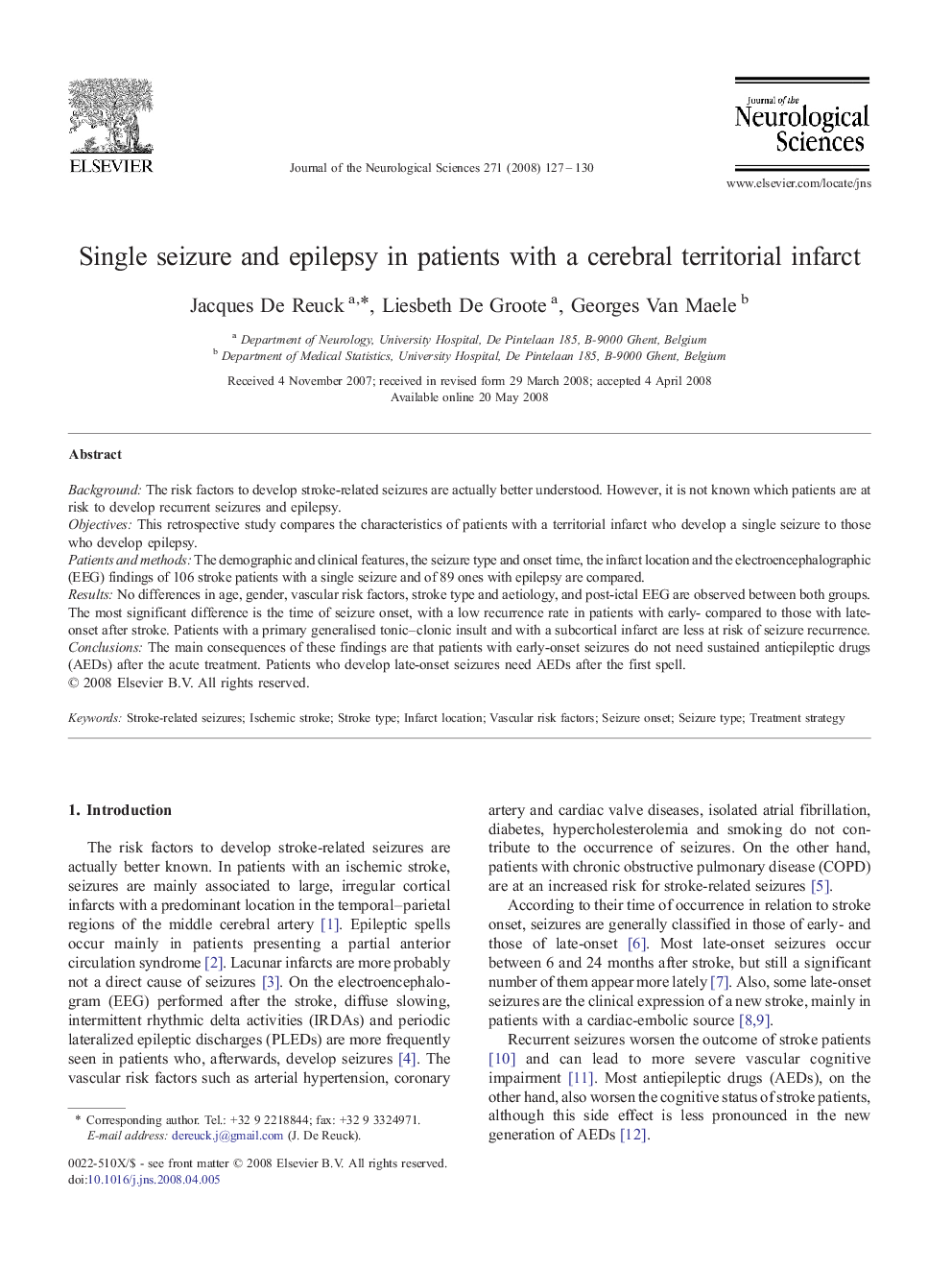| Article ID | Journal | Published Year | Pages | File Type |
|---|---|---|---|---|
| 1915480 | Journal of the Neurological Sciences | 2008 | 4 Pages |
BackgroundThe risk factors to develop stroke-related seizures are actually better understood. However, it is not known which patients are at risk to develop recurrent seizures and epilepsy.ObjectivesThis retrospective study compares the characteristics of patients with a territorial infarct who develop a single seizure to those who develop epilepsy.Patients and methodsThe demographic and clinical features, the seizure type and onset time, the infarct location and the electroencephalographic (EEG) findings of 106 stroke patients with a single seizure and of 89 ones with epilepsy are compared.ResultsNo differences in age, gender, vascular risk factors, stroke type and aetiology, and post-ictal EEG are observed between both groups. The most significant difference is the time of seizure onset, with a low recurrence rate in patients with early- compared to those with late-onset after stroke. Patients with a primary generalised tonic–clonic insult and with a subcortical infarct are less at risk of seizure recurrence.ConclusionsThe main consequences of these findings are that patients with early-onset seizures do not need sustained antiepileptic drugs (AEDs) after the acute treatment. Patients who develop late-onset seizures need AEDs after the first spell.
